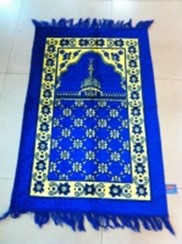
Some religions require believers to pray at specific times during the day. Individuals may therefore request access to an appropriate quiet place (or prayer room) to undertake their religious observance. Employers are not required to provide a dedicated prayer room. However, if a quiet place is available and allowing its use for prayer does not cause problems for other candidates if in a recruitment context or the business overall in an employment context, organisations should agree to the request.
Where possible, it is good employee relations practice for organisations to set aside a quiet room or area for prayer or private contemplation. In consultation with staff, it may be possible to designate an area for all staff for the specific purpose of prayer or contemplation rather than just a general rest room.
Such a room might also be welcomed by those who are breastfeeding/expressing milk and also by those who, for example, have suffered a recent bereavement.
A ‘Do not disturb’ sign should be made available for users of the room to be able to undertake prayers or a quiet moment without being interrupted.
If a key needs to be sought each time the room is to be used, then it is important to ensure that this process is dignified, straightforward and quick.
Organisations should consider providing separate storage facilities for ceremonial objects.
Employers are not required to enter into significant expenditure and/or building alterations to meet religious needs. In any event many needs will involve little or no change. For instance, some religions or beliefs require a person to wash before prayer. This is often done symbolically or by using the existing facilities. However, it is good practice to consult with staff and to consider whether there is anything reasonable and practical which can be done to help staff meet the ritual requirements of their religion.
It may help, for example, if all workers understand the religious observances of their colleagues thus avoiding embarrassment or difficulties for those practicing their religious obligations.
Muslim Prayers
Your Muslim employees will probably be the most common users of a prayer room – although other religions also require obligatory prayers to be said.
Salat is the obligatory Muslim prayers and is the second Pillar of Islam. It is performed five times each day. Although these times are specific and need to be observed almost to the minute, they are based upon sunrise and sunset times and will vary slightly throughout the year:
- Salat al-fajr: dawn, before sunrise
- Salat al-zuhr: midday, after the sun passes its highest
- Salat al-‘asr: the late part of the afternoon
- Salat al-maghrib: just after sunset
- Salat al-‘isha: between sunset and midnight
The timings of these prayers are specific (there are online calendars that provide exact times for any given date and location), and it is important to give these employees some flexibility to be free to use the prayer room at these specific times.